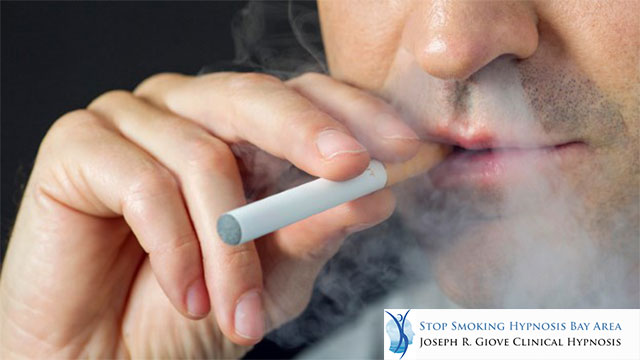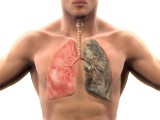
What Are the Effects of Nicotine on the Body
Nicotine is one of the most dangerous chemicals that can be ingested into the body. Whether you are chewing tobacco, smoking a pipe or cigarettes, or even using patches or gum for quitting smoking, the number of carcinogens that are in nicotine is alarming.
Nicotine is severely addictive, which makes this drug even more dangerous to the body. Nicotine is so addictive, it has been likened to being addicted to heroin or cocaine. Quitting smoking is hard to do and trying to quit often takes several attempts, but the sooner you quit smoking, the less nicotine will affect your body in the end.
Nicotine has many effects on the body. Obviously, most of them are adverse but there are a few that temporarily enhance some of the body’s functions. This article will look at all of the effects that nicotine will have on your body, and how Clinical Hypnosis and Hypnotherapy can help you quit smoking to avoid these effects.
What Are the Physical Symptoms of Nicotine Use
When nicotine is smoked or absorbed into the body, it can have many harmful side effects. Here are some of the symptoms you can expect after prolonged nicotine abuse and the parts of the body that will be affected.
- The Heart – Nicotine causes the heart rate and blood pressure to increase. Eventually, you will be at a much greater risk of heart disease and stroke because the heart has to work much harder to clean the nicotine out of your system.
- The Brain – Nicotine causes minor problems in the brain such as dizziness, tremors, and sleep disturbances. The major problem is that nicotine is highly addictive for the brain and therefore, in turn, affects all other parts of the body.
- Metabolism – Nicotine increases the calories that the body burns, but that is only because the body is trying to get rid of the nicotine. This means that there will decreased endurance and breathing problems. Basically, the body may be alright for a sprint but will not make it for a mile.
- The Reproductive System – Men are at risk to develop erectile dysfunction and impotence at a higher rate than non-smokers. Women increase their risk of infertility and miscarriage. There are also many risks to a baby that is exposed to nicotine from the mother.
- The Eyes – Nicotine actually damages the eyes in many ways. It will degenerate the eyes so that there will be night vision problems, peripheral vision problems, as well as overall vision issues.
- The Bones – Nicotine increases the risk of osteoporosis. People who smoke have been found to be at a greater risk for fractures due to the weakening of the bones.
- The Stomach – Nicotine is depressant on the hunger sensation and makes the brain think it doesn’t want food. Anorexia is a common disease associated with smoking and is very dangerous to overall health.
- The Lungs – Nicotine obviously has a negative effect on the lungs. It causes the lungs to be over-stimulated and increase the production of respiratory secretions. This means the lungs are working harder than they have to. Prolonged use of nicotine will cause the lungs to paralyze and could lead to respiratory failure.
- The Rest – There are other side effects of prolonged nicotine use including: heartburn, diarrhea, dizziness, stomach acid, mouth pain, and fatigue.
These are some of the serious negative effects that nicotine has on the body. The longer a person smokes cigarettes, the greater the risk of having one or all of these problems with their body.

Positive Effects of Nicotine Use
While the negative effects of nicotine on the body are plentiful, there are some positive effects. It should be noted that nicotine is very dangerous to a person’s long-term health and this article is simply depicting all of the effects that nicotine has on the body. These short-term positive effects are minor and will not outweigh the extremely dangerous adverse effects of nicotine use.
Nicotine in cigarettes has been found to be a stimulant for cognition, focus, and alertness for a short time. It makes a person more aware and also stimulates memory, attention, and motor abilities. Nicotine acts as a stimulant in the brain that temporarily increases its activity.
Reflexes are also increased with nicotine use. Research has shown that finger tapping speed increases with smoking cigarettes. Again, since nicotine is a stimulant for the brain, it causes faster muscle movement in the body.
Clinical Hypnosis and Hypnotherapy
While there are some “positive” short-term effects of nicotine on the body, the negative aspects are much greater. There is no doubt that nicotine is dangerous to the body and could have long-lasting or permanent effects.
Clinical Hypnosis and Hypnotherapy is a non-intrusive method of helping you quit smoking and overcome the effects of nicotine. Joseph R. Giove is a licensed Clinical Hypnotist with over 30 years of experience helping people quit smoking who doesn’t use chemicals or any other carcinogens. All he uses is the power of the mind to gently alter your brain patterns so that you lose your craving for cigarettes, and eventually despise them.
Quitting smoking will add years to your life and result in a better quality of life. The sooner you can cut nicotine out of your life, the better off you and your loved ones will be!